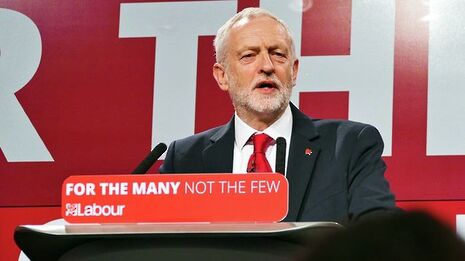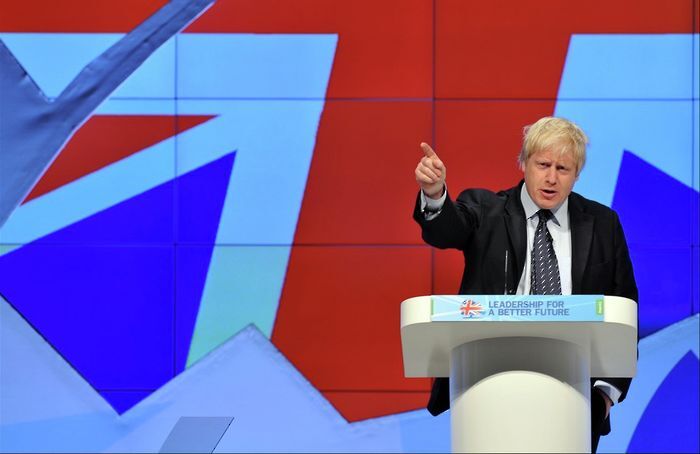Labour’s promise to abolish private schools benefits no one
We must consider the pitfalls of Labour’s new policy to abolish private schools – especially how it could detriment state schools, argues Saajan Gill

As a product of a state school, the temptation to unabashedly praise Labour's plans to abolish private schools is truly immense. With their pristine brochures, palatial architecture and acceptance-rate-defying university destinations, sometimes I can’t help but feel envious towards my privately-educated counterparts.
This bitterness, though understandable (perhaps even inevitable), is no basis from which to adjudicate on an issue that will undoubtedly affect every family in the UK. It seems Labour has done just that. In fact, this is just the latest in a string of specious populist policies pursued by Labour, that, despite warming their own hearts, could backfire. Among these, scrapping tuition fees, the imposition of rent controls and now the abolition of private schools. We should consider the pitfalls of this latest policy.
This approach is not useful to the state-educated, the privately-educated, or the relations between them
The argument is, in short, that private schools ought to be abolished because they produce unequal educational outcomes (relative to state schools), which propagate into adulthood and stratify society into classes founded primarily on the private-state divide. However, it is unclear whether the abolition of private schools will actually end this. For example, wealthier parents will still advantage their children through private tutoring, language classes, prestigious internships and cultural visits, as is their right.
At present, around 6.5% of British children attend private schools, rising to 15% of students over the age of 16. The absorption of these students into the already fragile, underfunded and understaffed state school system would be extremely detrimental. The repercussions include an estimated £3.5 billion shortfall to maintain the same level of per-pupil funding, which would either decrease the resources available to all students, or increase the tax burden for the entire country.
Neither route is likely to improve the educational outcomes of state school or private school students. Such a policy could also lead to a worsening of the teacher shortage currently affecting students, as it may lead to fewer graduates entering teaching due to them no longer having the motivation of a large earning potential in the private sector. Although the vast majority of teachers pursue their career with non-financial motivations, financial considerations will always play a part, however small.
The consequences of pursuing such a policy on wider society include the following: the loss of an estimated 300,000 jobs, an associated £4.1 billion in tax revenue, and the human capital that private schools excel at cultivating. One estimate by Oxford Economics predicts that the UK’s GDP would have been £73 billion lower in 2017 had private schools ceased to exist in the 1940s.
The ineffectiveness and troubling moral territory this policy enters is extremely worrisome
As part of this policy, Labour has suggested a ‘redistribution’ of the assets of these private schools. This is a terrible idea. These assets are the results of hundreds of years worth of charitable donations. The forcible seizure of these assets, donated in good faith, is morally corrupt. We cannot dictate where people ought to spend their money.
Furthermore, the income gained from these monetary assets is frequently used to assist poorer families in affording high-quality private schooling. For example, more than 1300 schools are constituents of the Independent Schools Council, and together they contribute over £800 million annually to less wealthy families in the form of fee reductions. At Eton College, approximately 20% of students receive an average fee reduction of 67%, with 90 students attending for free.
This approach is not useful to the state-educated, the privately-educated, or the relations between them. It is also unfavourable for the country as a whole. The state-educated are forced to contend with more strain on their already insufficient resources. The privately-educated lose out on excellent teaching and facilities. Relations between the two groups sour as each comes out of the policy worse for it, and inevitably begins assigning blame. The country loses out on a significant amount of jobs along with the associated tax revenue.
The ineffectiveness and troubling moral territory this policy enters is extremely worrisome. However, the opportunistic way Labour preys on the frustration and envy experienced by impressionable students studying in state schools is even more harrowing. Instead of fulfilling their responsibility to these children and actually tackling the myriad of issues plaguing state schools, Labour barrels recklessly down a vindictive, emotion-driven path.
This policy does not benefit parents, private schools, and most pressingly, it does not benefit state schools. This policy only helps Labour by buttressing its unearned sense of moral superiority. As far as this policy is concerned, Labour is for itself, not the many or the few.
 News / News in Brief: Postgrad accom, prestigious prizes, and public support for policies11 January 2026
News / News in Brief: Postgrad accom, prestigious prizes, and public support for policies11 January 2026 Comment / Will the town and gown divide ever truly be resolved?12 January 2026
Comment / Will the town and gown divide ever truly be resolved?12 January 2026 Features / How sweet is the en-suite deal?13 January 2026
Features / How sweet is the en-suite deal?13 January 2026 Comment / Plastic pubs: the problem with Cambridge alehouses 5 January 2026
Comment / Plastic pubs: the problem with Cambridge alehouses 5 January 2026 Lifestyle / The only party girl in the East Midlands12 January 2026
Lifestyle / The only party girl in the East Midlands12 January 2026










